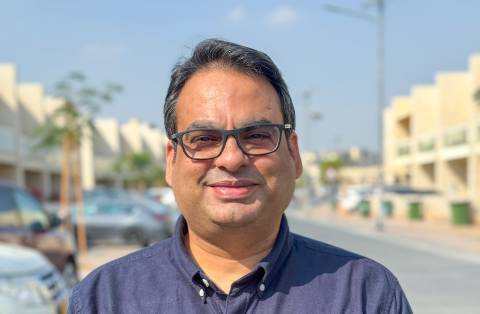Paris is on high alert after at least three gunmen armed with AK47s stormed the offices of a satirical magazine and killed at least 12 people and injured seven, Philip Ingram reports.
The attack killed journalists who worked for the satirical magazine Charlie Hebdo which has repeatedly clashed with Islamist extremists over publication of articles and images that were considered offensive to Islam.
There are reports that they repeatedly shouted, “The Prophet is avenged” during the attack.
The gunmen fled the scene in a hijacked vehicle after a standoff with police.
One of the gunmen killed a wounded police officer by shooting him in the head while he was lying on the ground, confirmed by a video clip which has been posted on YouTube.
The French police are currently looking for the killers.
There is speculation that the killers were well trained based on initial analysis of the bullet spray and the confidence with which they carried out the attack. However, they appear to have lacked basic information about the exact location of the magazine within the building that they attacked – one worker in the office building said a gunman burst into her office shouting “Charlie Hebdo” as if he wanted her to tell him where their office was located.
She also noted that their French was poor, indicating that they were probably not native speakers.
French media are reporting that one of the dead is the editor of Charlie Hebdo, Stephane Charbonnier.
Charlie Hebdo has been the target of attacks in the past. In 2011 it was attacked with a fire bomb which destroyed its offices and computer system which was thought to be the target of the attack.

Francois Heisbourg, an anti-terrorism expert based in Paris and a special advisor at the Foundation for Strategic Research, told BBC News that the terrorists targeted Charlie Hebdo because of what it stood for, not because they wished to influence French politics.
“This will have significant impact on the political consequences of this attack because the population as a whole will feel challenged. This will not divide French society – it will come to unite France,” he said.
He observed that the attack appeared well planned. “It was a very professional attack. It reminded me on the videos that I saw here of the commandos who attacked in Bombay a few years ago. These guys had been trained to kill, they had not been trained to blow themselves up.”
He would not be surprised to find out that the perpetrators were Jihadis returned from the Middle East. “This is as close to a military operation as any terrorist act can be,” he said.
He dismissed the suggestion that the attack was aimed at raising tensions in France. “I think that the aim was to attract more attention for the jihadi group which sent them out on the global jihadi market. Don’t forget that groups are in competition for market share. The target was such that these guys could not be seen as wanting to influence French politics in the Middle East or Africa,” he said.
“These guys want to motivate their own people, they want to recruit more people, they want to develop their ability more to launch operations in the Middle East than outside the Middle East,” he added.
“This is the worst terrorist act to have occurred on French territory in more than 50 years. This is a turning point certainly in France – there will be high level of ramping up of anti-terrorist investment, if I can put it that way, in terms of human resources, in terms of budget, in terms of police, and security and military deployments,” he said.
James Abernethy, a former British Military Intelligence Officer who has commented on terrorism issues for us before has told us:
“This type of attack in countries linked with the allied operations against AQ and the so called IS has been expected. France was already on the alert for Islamist attacks after several incidents just before Christmas where cars were driven at shoppers the cities of Dijon and Nantes, and a man wielding a knife in Tours attacked police.
“Immediate analysis of the attack techniques would suggest individuals were well trained and are probably aligned to Sunni extremists and likely ISIS supporters; they have all the hallmarks of individuals who have been trained in military operations but it is too early to confirm this. Further unconfirmed reports suggest there could have been 4 or 5 attackers. They also seem to be well trained and their murder of a police officer emphasized their abilities.
“The way extremism is exported overseas is by suggesting attacks in general to global audiences over social media rather than tasking specific individuals or sleeper groups to carry our specific attacks. This allows local initiative to be used for the common evil purpose and why we have seen an increased use in kitchen implements (knives and pressure cooker bombs) rather than military hardware. Both ISIS and AQ have called for attacks on western companies including BA and EasyJet.
“Today’s attack is more worrying as military weapons were used, there seems to be a degree of tactical maneuvering during the attack and the attack was clearly planned. This would suggest a group has been looking at this and this target for some time. They have probably carried out reconnaissance of the target several days beforehand.
“Successful attacks like this will buoy up other extremists and will likely stimulate further attacks. From a threat perspective, this re-emphasizes the very real threat that exists today in all of our countries.”












